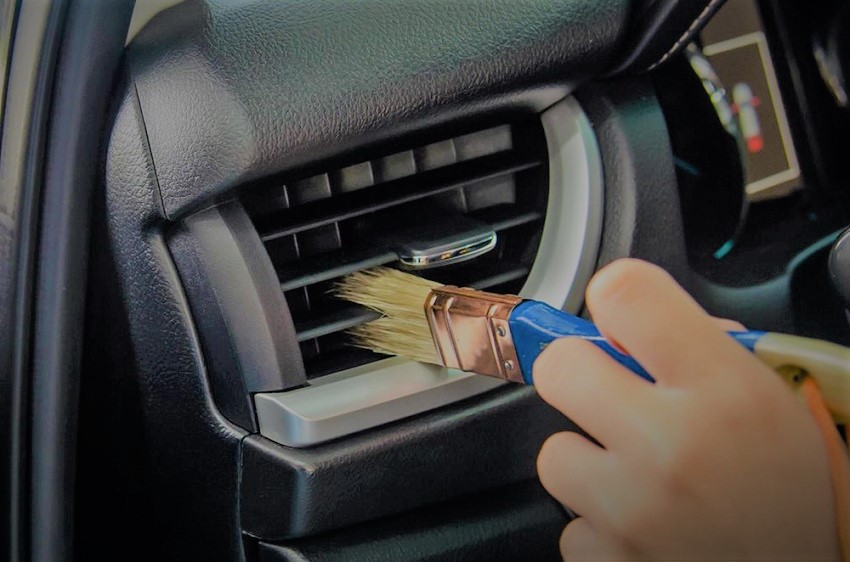When the summer heat hits and you rely on your car’s air conditioning system to keep you cool and comfortable, there’s nothing more frustrating than finding out that it’s not working as it should. A malfunctioning car AC can make your daily commute or road trip unbearable, leaving you sweaty and irritated. In this article, we’ll explore the common reasons why car AC is not cooling and provide a troubleshooting guide to help you diagnose and resolve the issue.
1. Low Refrigerant Level
If your car’s AC blows warm air, one possible cause could be a low refrigerant level. The refrigerant is responsible for absorbing heat from the cabin and dissipating it outside. Over time, the refrigerant may leak or deplete, reducing cooling efficiency. It’s important to note that simply adding more refrigerant without fixing the underlying leak is not a long-term solution.
2. Clogged or Dirty Condenser
The condenser is a vital component of your car’s AC system that helps remove heat from the refrigerant. If the condenser becomes clogged with dirt, debris, or insects, it obstructs airflow and the cooling process. Regular maintenance and cleaning of the condenser can prevent this issue and ensure optimal cooling performance.
3. Faulty Compressor
The compressor plays a crucial role in the AC system by compressing and circulating the refrigerant. If the compressor malfunctions or fails, it can lead to insufficient cooling. Unusual noises, such as grinding or squealing, from the compressor may indicate a problem needing attention.
4. Electrical Issues
Electrical problems can also be responsible for a car AC not cooling properly. Issues like a blown fuse, a faulty relay, or a broken wire connection can disrupt the functioning of the AC system. If you suspect an electrical problem, it’s recommended to have a professional inspect and diagnose the issue to ensure a safe and accurate repair.
5. Blocked Air Vents
Sometimes, the culprit behind an ineffective car AC can be as simple as blocked air vents. Objects like papers, leaves, or even loose items in the glove compartment can obstruct the airflow, preventing cold air from reaching the cabin. Check all the air vents and ensure they are clear and unobstructed to allow the air to flow freely.
6. Damaged or Leaking AC Hoses
The AC hoses in your car are responsible for carrying refrigerant between different components of the AC system. Over time, these hoses can develop cracks or leaks, causing the refrigerant to escape and reducing cooling efficiency. Inspecting the hoses for visible damage and addressing any leaks promptly can help restore proper cooling.
7. Faulty Thermostat
A faulty thermostat can interfere with the temperature control of your car’s AC system. Suppose the thermostat is not accurately sensing the temperature or fails to communicate with the AC system. In that case, it may result in inconsistent cooling or the inability to maintain the desired temperature. A professional inspection and potential replacement of the thermostat may be necessary.
8. Worn-out AC Blower Motor
The AC blower motor pushes the cold air from the AC system into the cabin. If the blower motor is worn out or malfunctioning, it can impede the airflow and reduce cooling efficiency. Unusual noises, weak airflow, or a complete lack of airflow from the vents indicate that the blower motor may need attention.
9. Insufficient Cooling at Idle
If you notice that your car’s AC works fine while driving but fails to cool effectively when idling, it could be due to a faulty cooling fan. The cooling fan helps dissipate heat from the condenser when the vehicle is stationary or moving at low speeds. If the fan is not functioning correctly, it can lead to inadequate cooling while the car is idle.
10. Overheating Engine
An overheating engine can indirectly impact the cooling performance of your car’s AC system. When the engine temperature rises excessively, it can affect the efficiency of the AC compressor and cooling fan. Proper engine cooling system maintenance, including regular coolant checks and radiator cleaning, can help prevent overheating issues.
Conclusion
A malfunctioning car AC can turn a pleasant drive into an uncomfortable experience, especially during hot summer days. By understanding why car ACs fail to cool effectively, you can troubleshoot the issues and take appropriate measures to restore the cooling performance. Remember to address any AC-related problems promptly and, if necessary, seek professional assistance for accurate diagnosis and repairs.









